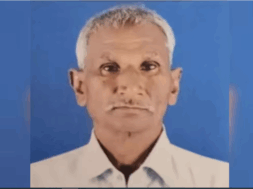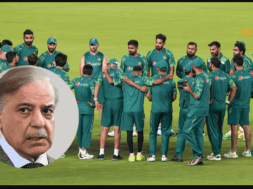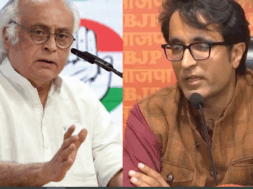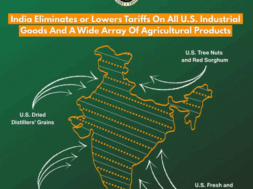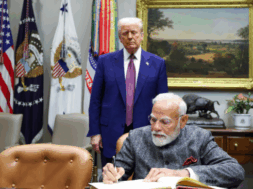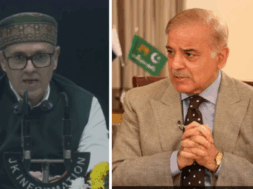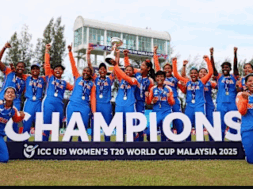
Manas Dasgupta
NEW DELHI, Jan 31: Even as the renewed Pegasus row over a report in the New York Times threatening to disrupt the budget session of Parliament which began on Monday, the prime minister Narendra Modi has urged all the members cutting across the party line to make the session “meaningful and effective” through discussions.
A report in the NYT published on Saturday claimed that Indian government did buy the Pegasus spyware from Israel during Modi’s visit to that country in 2017 for snooping on some political leaders, including a few from the ruling party, supreme court judges, journalists and a number of other private citizens in the run up to the parliamentary elections in 2019.
The report cast a shadow on the budget session due to the apprehension of opposition’s attack on the government for “misleading Parliament” over the alleged purchase of the Israeli spyware. In a statement issued outside Parliament after the inauguration of the budget session, the prime minister said all the members should make meaningful contributions to guide the country on the path of economic progress.
“It’s true that frequent elections will have their impact on the session and the discussions we are having inside. But elections will have their own place and the session has its place. The Budget Session is an important session and we should make it as effective as it can be,” Modi said in his statement.
The prime minister said the international situation opened up several opportunities for India and its economic progress. India-made vaccines have earned trust across the globe, he said. “The budget presented in this session draws plans for the entire year. So I appeal to all members and parties to discuss issues with a commitment to take the country forward in the path of economic progress. We must, with all our intellectual resources, ensure that the session is fruitful and the upcoming year sees us scale new heights as far as the economy is concerned,” Modi said.
Finance Minister Nirmala Sitharaman will present the budget at 11 am on Tuesday. The session began with President Ram Nath Kovind addressing a joint session of both the houses at Parliament’s central hall, in which he listed the government’s initiatives in various sectors.
Modi’s appeal to have “open and well-intentioned discussions” comes amid the Opposition’s allegation that the government had misled Parliament on the alleged surveillance using Pegasus spyware. The Congress has given notices for a privilege motion against Information Technology Minister Ashwani Vaishnaw, who had told the House last year that India had not bought NSO Group’s controversial spyware tool. The issue, which had rocked last year’s Monsoon Session, resurfaced after the NYT report.
The government is expecting a turbulent session as a number of Opposition leaders, including the Congress leader in the Lok Sabha, Adhir Ranjan Chowdhury, have given privilege notices against the information technology minister. Trinamool Congress leader Saugata Roy in the Lok Sabha and the CPI’s Binoy Viswam in the Rajya Sabha also have given notices for a privilege motion on the matter. The session also is taking place at a time when the ruling and Opposition parties are locked in fierce electoral battles in five states, including Uttar Pradesh.
The Lok Sabha secretariat convened a meeting with leaders of all parties. “In the meeting, I have told the leaders of parties that there could be extensive discussions on the presidential address and the Union budget, during which all kinds of issues could be taken up, discussing all the issues faced by the country and how the country can go forward in terms of economic and social progress. The members can use the forum to bring the people’s issues to the government’s attention,” Lok Sabha Speaker Om Birla said. He expressed hope that the house would function smoothly with the support of all parties and the government.
In the all-party meeting, parties agreed to have a discussion of the motion of thanks for the presidential address and the budget for 12 hours each. When the Opposition wanted to have short-time discussions, the speaker agreed. But when it raised the issue of Pegasus, Parliamentary Affairs Minister Pralhad Joshi said the matter was being investigated by a Supreme Court- appointed panel. “The matter is sub judice before the Supreme Court. It’s not right for anyone to comment on it,” he said. However, the Opposition seemed to have decided to put the government on the defensive.
The Budget Session will continue till February 11. From Wednesday, the Rajya Sabha will sit from 10am to 3pm while the Lok Sabha will meet from 4pm to 9pm because of Covid restrictions. There will be a recess from February 12 to March13, during which the standing committees will examine budgetary allocations for various ministries and departments. The session’s second part is expected to start on March 14 and scheduled to end on April 8.
Earlier addressing the joint session of Parliament, President Kovind lauded the health care professionals, the government’s massive vaccination drive against COVID–19 aided by the indigenous production of vaccines and the citizens “who displayed profound faith in the democratic values, discipline and sense of responsibility” during the pandemic entering its third year.
“The Covid pandemic affected the entire world and in India too many of our loved were snatched away from us. In these circumstances, the Central government, State governments, local governments and administration, our doctors, nurses and health workers, our scientists and entrepreneurs have worked as a team,” he said. He did however express hope, based on figures that the economy was back on track to becoming one of the fastest growing economies in the world.
He referred to policy interventions by the Central government to increase farm incomes, the income support scheme for small farmers (Pradhan Mantri Kisan Samman Nidhi), record production and government procurement of produce, agricultural imports crossing the ₹3–lakh crore mark and crop insurance schemes.
A major part of the speech was on the spread of the vaccination drive undertaken by the government, with more than 70% of the adult population having had both doses and the free grain programme, the largest such programme in the world, which he said was an act of a “sensitive government” towards the most marginalised.
Mentioning the provision for a Gender Inclusion Fund in the New Education Policy, he also noted that all 33 Sainik Schools had started admitting girl students. “Treating sons and daughters as equals, my government has also introduced a Bill to increase the minimum age of marriage for women from 18 years to 21 years at par with men.”
Prominent mention in the speech was the infrastructure push being given by the government and the digital payments boom being seen in recent years. Marking climate change as one of the main challenges of the age, he lauded the government of India for “emerging as a responsible global voice” on the issue. “India has taken the initiative of ‘Green Grid Initiative: One Sun, One World, One Grid’ with the global community. It is the first international network of globally interconnected solar power grids,” he said.
